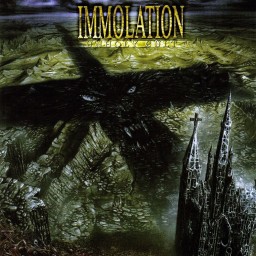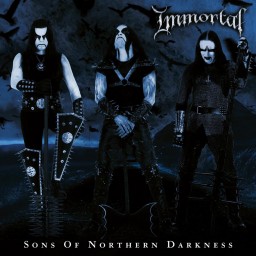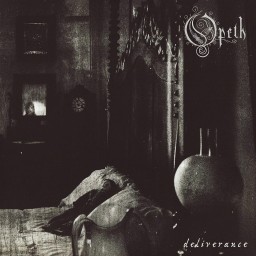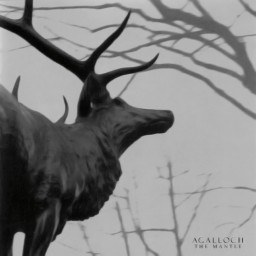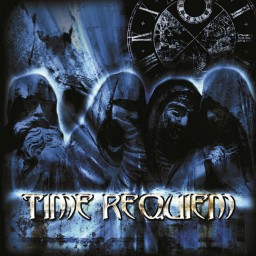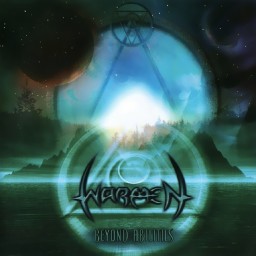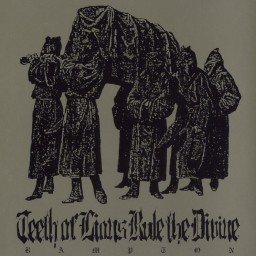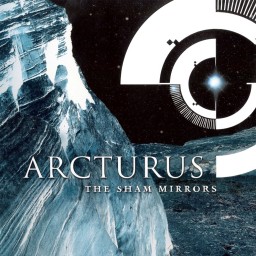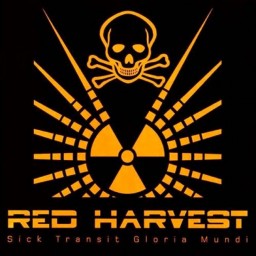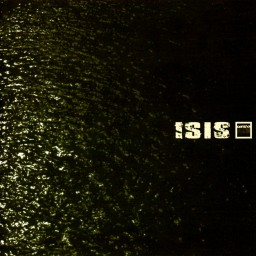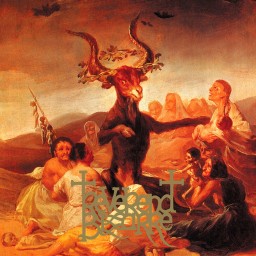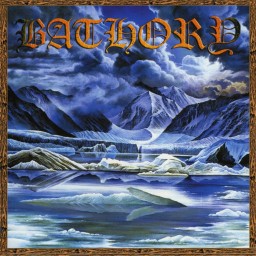Latest Reviews
Mike Scheidt seems like a nice bloke. Numerous interviews and documentaries that I have seen of late with him present have led me to this conclusion. Having come to understand his roots, influences and musical tastes has helped him to become more than just “that guy out of Yob who nearly died” as I sometime fear the music media typecast him as being. Whilst I have no doubt Mike is every part the survivor he gets portrayed as being, there is an intensity to his live performances that burns brighter than anyone else’s that I have seen over the many years that I have witnessed extreme music. Survival instinct aside, Scheidt’s a warrior when he has a guitar in his hands and a mic in front of his chin. Enduring a tough upbringing at the hands of peers that saw him plunge into the world of punk, metal as well as new wave (which remains a strong favourite of his musical tastes still) I imagine relates him to a lot of folks who didn’t fit with the “in” crowd in their younger years.
As a result of these insights, I feel I have more awareness of the depths present in Yob’s music. Something that may well have been previously lost on me. Understanding how Mike learned to stretch his legs (and hands/fingers of course) to move away from bar chords and pick out notes, becoming unafraid to change things up, has helped me to notice some of the nuances, touches and inflections present in the music of Yob. As a band who have always struck me as a trio who produce music with an enormous amount of structure, Yob have a reputation with me for building enormous soundscapes. Clearing the Path to Ascend was the most vast listening experience I had heard to date with the bands discography. With just four songs taking up over an hour of music, there was clearly little room for error here.
One could argue that with such a short array of lengthy tracks on offer, Yob could just throw the kitchen sink at each song and hope for the best. They don’t. As I mentioned earlier, if there’s one word I would associate with Yob, it’s “structure”. There is a level of patience required to be invested by the listener with this record, one that for me personally reaps some reward. The build ups take their time, but never to the detriment of the songs. My attention does not wane during these moments and let’s be honest, who comes to a doom record to be deterred by repetition? Scheidt’s nasal crooning and his guttural growls are probably the weakest part of Yob’s sound for me, yet I could not see any other style working half as well. They are delivered (like the rest of the music) from the heart. It is all about the riffs and heavy bass presence though for me, even if this does mean the drums are often lost in the fuzzy rumble of the mix of the album. It doesn’t feel like a deliberately obtuse production decision has been made here though, as I could argue more percussion just simply is not needed.
In a genre where most records can sound the same, Clearing the Path to Ascend uses cosmic atmospheres in places to provide “pauses for breath” I guess and to add variety. They are probably the most difficult aspect of the album to contend with for me. I would be happy for them to be ditched in favour of more pummelling for my ears. However, at over an hour long, I can see why the record needs these lulls in intensity. Yob manage to bounce the tracks back each time though, so as undesirable as it may be, I can forgive them at least. Listening to his album led me to the wider discography and I think that in comparison to some other albums, this one lacks any exemplar tracks. As strong an album as it undoubtedly is, there’s only really ‘Marrow” that deserves real note for the absolute poignancy of its delivery. No individual criticisms on a track-by-track basis then, but there are better Yob albums out there.
This was a favorite of mine when I started listening to more extreme metal, but it has fallen off quite a bit. It's a great listen overall, pretty fun stuff, but I think it really lacks memorability down the road. The opening track is obviously a classic and I do think it's great, but except for some really great parts (specially Drowned, the end of Bitter Loss and the awesome bridge on Morbid Devourment) I can't recall much of the rest of the album even just after listening to it, and it pretty much feels like the same song for half an hour. That is something to be somewhat expected from death metal, specially the old school stuff, but it's overly present here.
Also, a note on comparisons with Dismember: this is very frequently compared to LaEFS as they are the two most famous swedeath albums, but I think they're really not that similar. This is way more crude and rock n' roll-ish, maybe foreshadowing Entombed's later rock tendencies, whereas LaEFS has a more melodic and technical nuance. Production-wise, LHP is more chaotic and harsh and I think sometimes it's even a bit hard to understand what's going on, while LaEFS is more tame and controlled, resulting in something more cohesive and a fair bit more brutal. Also, Dismember's vocals are way more controlled and honestly better overall.
Maybe the definition of a kick-ass album. Through the first songs the only thing that I picture in my mind is endless mosh pit madness, because DAMN this is the perfect combination to bang your head to a wall. The absolute best of the swedeath signature guitar tone, chonky and relentless, and just awesome and fun punk infused death metal with some melodic stuff sprinkled over to give it an interesting twist. The only reason I deduct a half-star from this is because I think the album dips a fair bit on tracks 5 to 7, but the first four are perfectly intense and heavy, and they fortunately comeback with In Death's Sleep as a closer, which is one of my favorite death metal tracks ever. Just beautiful.
A step down from Shrine from a few years ago. The individual songs have become less focused and do not have any pazazz when it comes to ear catching melodies. The album undoubtedly feels more like a "vibes" album where the strong sound of a melodic metalcore foundation with a death metal tinge is going to be the aspect that listeners will remember the most. Zenith has ambitions of being a more complete project from Shrine and that comes through in some really intense production which is highlighted by a far improved vocal performance. Scott Kennedy's vocals have always been a bit of a presence when the harsh death metal screaming comes out, but his singing was quite lackluster on the previous record. This time around, the clean vocals are greatly improved; the rasp in the timbre fits well with the instrumental style and does not create this weird hybrid effect where it feels like you're listening to two songs at once. I wish that I could have enjoyed Zenith as much as Shrine, but the heightened expectations of how impressed I was by Shrine left me feeling a little bit empty here. The texture of the album can only work so much when your audience already knows your playbook. At some point, Bleed From Within are going to have to broaden their scope.
Best Songs: In Place of your Halo, Zenith, Immortal Desire, Dying Sun
Montréal's Big Brave are a band I'm only recently getting into. This, their fifth album, is a mix of drone metal and post-metal with huge-sounding, pounding drum beats and discordant guitar work interwoven with some gorgeous female vocals that sound like a mixture of Siouxsie Sioux and Bjork. It's five tracks span less than forty minutes, so this isn't a long drawn-out affair unlike many drone-adjacent releases, but is focussed and kind-of to the point, for drone metal anyway. The band manage to cram a lot in and squeeze a lot out of their forty minutes, conjuring up haunting visions of crumbling edifices and long-deserted streets, especially on the title track, for a style I want to call post-human metal.
For this small marathon of deathcore releases to listen to and review, I saved the most brutal one for last. I don't know anyone who has confused this band with Within Temptation because of that name, but it's good that no one has, because they're complete polar opposites. There's no female-vocal symphonic metal here, only brutal slam-infused deathcore. Actually a full-on combination of Within Destruction and Within Temptation's styles would be something in the age of symphonic deathcore. Anyway...
Back then, Within Destruction wasn't the anime-influenced nu metal/deathcore (animetal) band that they would eventually be. In Deathwish, they were really digging deep into the depths of Hell to unleash deadly brutality. And this was around the time Mental Cruelty was doing that as well before their symphonic blackened deathcore direction.
The intro track "External Interference" is just an audio sample where some guy mentions alien invasions that he supposedly found. Interesting setup but skippable. The title track crashes in with guest vocals by Duncan Bentley (Xavleg, Vuvlodynia). And no matter the brutality, the production sounds clearer than other underground extreme metal albums. "False Revelation" follows more typical leads and rhythms in the deathcore genre. Same with "Extinction", but they're all still great.
Occasional leads help balance out the monstrous grooves in "Torture Ritual". The more feral vocals in "Human Defect" are so beastly, in part due to the guest appearance by Infant Annihilator's Dickie Allen. "Downfall of Humanity" exemplifies their sound the best, including an apocalyptic breakdown midway throuh.
That breakdown is nothing compared to that of "Darkness Swallows Life". That and the drums there would f***ing peel you down layer by layer then stitch you back up. "Self Hatred" is more straight with catchy yet heavy riffs, leads, and atmosphere. The soloing is also quite interesting. "Death Awaits Us All" is the 5-minute epic with some great variation. As far as their later sound would go, that one's pretty close. The outro "HMR45" ends the album with a more robotic audio sample.
Deathwish is one of the most extreme deathcore albums I've heard to have clear production. Although I'm quite used to the more muddy albums out there, here things are so polished that it's like I'm in the studio witnessing them record. And it's quite well-written too! Though will it make me a new fan of the band? I'll go with possibly....
Favorites: "Deathwish", "Human Defect", "Downfall of Humanity", "Darkness Swallows Life", "Death Awaits Us All"
Continuing the trend of nu-infused deathcore is Left to Suffer, which is a new band to me as well. I've really only heard one song from this band, which also happens to be in this album, so we'll talk about that when we get there. The band was formed in Atlanta, Georgia in 2019 and have since released 3 albums, with some songs having guest vocalists from bands like Lorna Shore, Ov Sulfur, and Fit for an Autopsy. And today, we'll be checking out their second album Feral.
What an aptly titled name for an album! All you can expect is the headbanging primal aggression of their nu-ish metal/deathcore, which is apparently all the band wanted to make since they first formed. And it looks like they've achieved that goal in just 25 minutes of fire and fury.
We already reach thick depths in the title opener within the vocals and riffs. As the guitar rage bursts through, vocalist Taylor Barber unleashes his growls, with some clean singing in the more melodic sections. Add a couple kick-A breakdowns and we're in for a strong start. If you thought that was brutal, wait until you hear "Artificial Anatomy". Soon the heaviness speeds up and then you hear the fast growling rage of guest vocalist Kim Dracula. Taylor ends the track with a shrieking breakdown that practically makes that song their own "To the Hellfire"! Then it segues to their own "Of the Abyss", "Primitive Urge". I consider it that because of the melodic strings in the background, really adding a magic touch to the heavy aggression of guitar duo of Jacob Gordon and Peter Higgs. Not to mention the growls by Fit for an Autopsy's Joe Bad.
"Break the Fever" has more brutal drumming by Alex Vavra, and greater variety in Taylor's vocals from high to low. Those vocals reach their peak in the middle of the song along with the guitar effects. That part is so f***ed up but in a great way. And with the searing soloing, that marks another excellent highlight. Heading into "Recluse", you can imagine yourself getting ready for a battle motivated by Taylor's shouts and the audible bass of Christian Nowatzki. Full-on nu deathcore hits your face, only calming down for brief moments. I wouldn't be surprised if that song ended up in the DOOM Eternal soundtrack.
Then comes another strong standout in "Illusion of Sleep". It's short yet pulverizing in the breakdowns. Kinda like "Disappoint Me", another heavy banger. From the Architects-style BLEGHS to the typical deathcore breakdowns, there's so much impact in just those two minutes. "Consistent Suffering" is filled with feral death/metalcore. At over the one and a half minute mark is an unreal blend of sped up trap with the usual growled vocals. Those lyrics may seem sad, but the vocals make them sound mad.
Left to Suffer has their raging strength on display in Feral. Their destructive force is not one to be taken lightly. I wouldn't say this is the best deathcore album I've heard, but it's solid and attacks like a motherf***er....
Favorites: "Artificial Anatomy", "Break the Fever", "Illusion of Sleep", "Consistent Suffering"
I consider Love is Not Enough to be Converge's own Blind Guardian The God Machine. While Blind Guardian added more symphonics to their power metal, reaching that aspect's height in the special orchestral album Legacy of the Dark Lands, and then returning to their heavier roots in their new album, Converge added more atmosphere to their sound, reaching that aspect's height in the special post-sludge collab with Chelsea Wolfe, Bloodmoon. And now they're back to their heavier roots in Love is Not Enough!
These Massachusetts-based metalcore pioneers have a sealed lineup of Jacob Bannon (vocals), Kurt Ballou (guitars), Nate Newton (bass), and Ben Koller (drums). Aside from their poor debut Halo in a Haystack, the albums that followed are some of the greatest I've heard in non-melodic metalcore, and their new album continues that streak.
The title opener already launches you back into the thrashy metalcore/mathcore of their 2000s material, all in pure savagery. Then "Bad Faith" has more relatably helpless lyrics. The idea of someone being in an uncontrollable situation is something many of us have unfortunately experienced, including me. "Distract and Divide" is a minute-and-a-half blitz of rage against society. "To Feel Something" continues that helpless scenario with the idea of being numbed by insecure fears.
"Beyond Repair" is a different composition, a two-and-a-half-minute dark ambient interlude. It's OK, but a little weak. This album would be perfect without it. "Amon Amok" (is that a pun of Amon Amarth?) is more exciting as the lyrics tackle life's demons. "Force Meets Presence" is more expansive, expanding without end until it does end.
"Gilded Cage" takes on the epidemic of the world's industries. It is one of three over 4-minute epics to end the album, the second of which is "Make Me Forget You". This one lets rip the band's wild side as memories fade into silence in the lyrics. "We Were Never the Same" maintains the band's metalcore roots while restoring some of the post-sludge from Bloodmoon. The best way to end this half-hour journey!
September will mark the 25th anniversary of Converge's biggest album and America's biggest tragedy. I say Love is Not Enough is, well, not enough to surpass their 2000s material and All We Love We Leave Behind, but it does beat The Dusk in Us. Witness the return of the band's early hardcore as they protest against the darkness of humanity!
Favorites: "Love is Not Enough", "Distract and Divide", "Amon Amok", "Make Me Forget You", "We Were Never the Same"
Those last couple reviews for albums by Enterprise Earth and Fit for an Autopsy were my attempts at checking out the progressive side of deathcore, ending with fantastic results. Now we're going into the more nu-ish deathcore bands. I actually heard of The Last Ten Seconds of Life before this review because one of my brother's friends likes that band, along with a few of their tracks being added to my Revolution playlists, but that band was too brutal for me at the time. Maybe I can enjoy the brutality more now...
The metalcore/deathcore scene expanded a lot throughout the new millennium. Some might find some bands listenable, while others don't. This Pennsylvanian band storms through with some of the most aggressive riffs, breakdowns, and vocals you can imagine. Any open-minded heavy modern metalheads can recognize their strong talent.
"As the World Turns Over" begins their brutal nu metal-ish direction. The vocals sounds so monstrous! "The Box" has more massive guitar assault as the near-undecipherable lyrics growled by then-vocalist Storm Strope bite religion in the a**. Leaning into post-hardcore a bit is "North of Corpus". Then "Meant to Be Free" is covered in sinister riffing and breakdowns that are more horror-filled than The Exorcist.
"Guillotine Queen" has more of those growling vocals blended with whispering. Speeding up a little is "Pain is Pleasure" with powerful atmosphere. "Ballad of the Butcher" has all the different extreme aspects deathcore has. "Sacrifice (The Prince)" is so d*mn perfect, absolutely impressive with the brutal music and irreligious lyrics. F*** yeah!
"Changing Forms" continues the harsh growling and crushing guitars. We actually get a blues rock-sounding solo in the lighter yet ominous "Heavy Headed". Next up, "Junkie - Sprite" is an interesting highlight. Although they're still deathcore, that one leans into some of the chaos of Car Bomb while staying in a mid-tempo pace close to the industrial groove of Fear Factory and Mnemic. Finally, the vocals have more effect in "The Dream is Dead" which returns to the earlier brutal heaviness.
In a world where melodic pop songs have influenced even metal bands, The Last Ten Seconds of Life avoid those influences like the plague. Soulless Hymns is filled with heavy rage not for the faint-hearted. Anyone up for some brutal fury should take on these hymns of destruction....
Favorites: "As the World Turns Over", "The Box", "Meant to Be Free", "Ballad of the Butcher", "Sacrifice (The Prince)", "Junkie - Sprite"
The newest record from Swedish death doom duo Enshine is a pretty decent, if a little slow. I was worried about this album at first as the first two tracks didn't do anything for me. "Heartbliss" in particular had that really out of place transition between two different songs halfway through, before becoming a guitar solo for the remaining two/three minutes. "Distant Glow" was a bit of an eye opener. For one, it's entirely instrumental and secondly, it's the best track on the record. I was going to highlight this review with some snarky remark of "if you're best track on the album is the instrumental interlude, we're gonna have a serious problem" but that's not actually what happened. You see normally with these death/doom albums they start strong and lose momentum in the second half. As the album becomes more moody in its second half, it becomes considerably better. The slower tempos of "The Purity of Emptiness" and "Reignite" and the ample space given out by the vocals cause these songs to feel more lived in and do not feel forced like how "Heartbliss" or "Where the Sunrise is Felt" do.
This is a decent enough of an album if you can overcome the slog it takes to get going.
Best Songs: Distant Glow, The Purity of Emptiness, Reignite
Fit for an Autopsy is one of those bands I had never really thought of listening to. Likely because at the time this album came out, I was still quite selective about deathcore. I wasn't up to trying the more brutal bands, or at least sounding brutal in the name, like Fit for an Autopsy. So far, all I heard about their 2022 album Oh What the Future Holds is that apparently they took a more atmospheric progressive direction. Well, seeing how much I love the new Enterprise Earth album, let's not waste any more time...
You have no idea how quickly my interest went up in Fit for an Autopsy's music. Sure, many people have started their FFAA journey with The Great Collapse of The Sea of Tragic Beasts, but Oh What the Future Holds pretty much kickstarted it for me in an instant. Any doubt I have for this band is long gone!
Sounding unpleasant yet beautiful, the opening title intro will have you at the edge of your seat. After some ambient piano, it explodes into an intense barrage of vocals and riffs. "Pandora" is where everything hits full charge. The chaotic rhythms and dramatic melodies fit well together, alongside lyrics like "Too many graves, not enough shovels". Then "Far From Heaven" is more groove-ish in the riffs and drums. The chorus is well-paced, and the song gets more destructive all the way up to a brutal breakdown.
"In Shadows" is absolutely hammering! Nothing but relentless darkness to destroy all in its path. "Two Towers" has more smooth melody before it snaps back into aggressive heaviness. "A Higher Level of Hate" has more frantic riffs, drums, and vocals, all of which make another powerful highlight.
"Collateral Damage" is even more monstrous. You can witness a huge firestorm of blast beats, vocals, and leads, swirling around and burning different lands beneath. "Savages" attacks with savage technicality to headbang to. "Conditional Healing" continues the explosive energy. "The Man That I Was Not" is an awesome 7-minute closing epic. It impresses me with the alternation between cleans and growls. Just like the 7-minute closing epic of that Enterprise Earth album, it is the "best for last"!
This kick-A masterpiece that is Oh What the Future Holds has nothing filler at all and has allowed me to hear the top-notch talent of Fit for an Autopsy. I'm pretty much THIS close to letting it surpass Lorna Shore's Pain Remains as the best deathcore album of 2022. Indeed the future of deathcore holds great promise!
Favorites: "Pandora", "In Shadows", "A Higher Level of Hate", "Collateral Damage", "The Man That I Was Not"
Is it just me or was my deathcore exploration very quiet during these past few months since the release of the new Lorna Shore album? I've already made Make Them Suffer's debut Neverbloom a feature release, but for anything new or not yet heard by me, the well was run dry... Until a few awesome discoveries have popped up that made this a promising year for my deathcore journey. This 2024 Enterprise Earth album is the first of those discoveries, and my first deathcore review of 2026!
Death: An Anthology has made me remember that deathcore doesn't have to be symphonic to make a masterpiece. Throughout its literal hour of power, the brutality of the genre hits you hard while spreading into technicality and even some of the deep downtuned stylings of djent and some bright melody here and there.
There's still some orchestral beauty in the intro "Abyss" that includes synthesized vocal harmonies and guitar melodies, almost like the missing link between Cynic's first two albums. Of course, the savagery you'll soon witness will be far beyond what Cynic can do. It all crashes in with the vicious "Face of Fear". This chaotic blend of deathcore and elements of technical mathcore pretty much separates this band from the league of deathcore bands that take on the symphonic blackened approach. Then out of nowhere comes an epic clean chorus. "The Reaper’s Servant" continues the chaos, this time blurring the lines between brutal deathcore and melodeath. Adding to the massacre is the guest vocals by Darius Tehrani of Spite. "Spineless" starts off beautiful but then unleashes seething anger in the music and lyrics, "You spineless sack of festering sh*t!"
The djenty "King of Ruination" is basically full-on Meshuggah gone deathcore. It also has guest vocals by Shadow of Intent vocalist Ben Duerr, and it's probably the first track I've heard with his vocals that doesn't have any orchestrations. I love it! Next track "Casket of Rust" is one of two epics surpassing the 7-minute mark in length, and it further shows the band's tech-deathcore side. "I, Divine" blends their deathcore with some melodeath from Soilwork and even Hinayana with its occasional doomy melody. Leveling up the moshpit is "Malevolent Force" which is an absolutely grand smasher with some guitar soloing by Wes Hauch (Alluvial).
"Accelerated Demise" is a progressive instrumental almost like what BTBAM would make. A fun instrumental! Then "Blood and Teeth" may be the closest we have to a deathcore ballad, though the ravaging destruction is still around at times. "Curse of Flesh" is a kick-A 7-minute epic, again making the "best for last" aspect in some albums from deathcore and other genres. I absolutely enjoy the guest appearance by Trivium's Matt Heafy.
For those who think this offering lacks focus and is too pompous, you may want to reconsider that thought. It's not everyday a deathcore band can blend together elements of many genres into their sound, and that should be praised. With Death an Anthology and other epic masterpieces in these past couple years, there is a future for deathcore!
Favorites: "Face of Fear", "King of Ruination", "Casket of Rust", "Malevolent Force", "Accelerated Demise", "Curse of Flesh"
Who had a Textures reunion and album on their 2026 bingo card?
I've enjoyed Textures in the past. Their brand of progressive djent metal was quite unique at the time where the rhythmic breakdowns were an integral part of the songs instead of being some kind of obtuse metalcore breakdown. Dualism is still annual listening material to this day and a go to recommendation when people ask me what to start with when listening to quality djent music (with it being so few-and-far between quality releases anymore). But Textures were a band who probably never got the respect they deserved when it came to songwriting and a decade long wait between Genotype and Phenotype left a lot of people what could possibly happen here? Judging by the album title, you might expect this to be some kind of sequel to the previous album, but one playthrough and you can tell that this is not Textures status quo.
It took me a while to figure out why I didn't like Genotype at first. My first instinct was that the songwriting had taken a tremendous downturn over the last ten years. Instrumentals that felt like they were full of character have been replaced with stock djent grooves and heavy vocal focus and layering. The vocals have become fry and exhaustive instead of the mellow and almost harmonic texture of previous releases. After a while, I started making comparisons to the band Northlane, specifically the 2022 record Obsidian. Northlane changed their sound considerably from a traditional metalcore with djent to something that was far more atmospheric with Obsidian. After that comparison was made, any attempts by Genotype to impress me were immediately squashed.
Northlane's Obsidian has influence from Textures if you know where to look. The songs were more pop oriented than Dualism, but they could get away with it thanks to heavier roots and strong vocal performances from Marcus Bridge. Textures tried mutating Obsidian back into a Textures album and the result is lacking; the fundamentals are very pedestrian, the vocals of Daniël de Jongh are uninspired; as mentioned before, lots of shrill high singing and harsh vocals don't fit Textures at all, and the melodies between the guitar and vocals are bland.
In a way, I see Genotype as the antithesis to Tool's Fear Inoculum (I sure hope that I don't have to reference that album too many more times this year!) Textures are a band that had a good thing going. Then they disbanded, and then they came back trying to be something that they are not. The end result is disappointing. This band, who have been out of action for nearly a decade, try to keep up with the modern day progressive/djent trends and ironically, lost the feel of what Textures was all about.
Best Songs: At the Edge of Winter, Vanishing Twin, A Seat for the Like-Minded
Simple, But that Doesn't Mean it's Easy
By all accounts, Applause of a Distant Crowd shouldn't work. This is an album that is too simple for progressive music. The synth leads on this album are deliberately loud and at the top of the hierarchy of sound, while the guitars play a far more harmonic and rhythmic role. The albums song lengths are rather brief, even by comparison to some tracks from Inmazes. And yet, none of Applause of a Distant Crowd sounds simple. Songs on this record have a strong tendency to grow and develop over time, whether that be a quiet modulation in time signature, the main chorus being slightly altered over time, the percussion adding a complex drum fill in place of what was a standard groove previously. And most importantly, all of it feels like it belongs within the same walls of this album.
This is a record that I hear many people discussing when bringing up Sleep Token in the modern day. And having gone back recently to hear this album again, I completely understand why. My biggest concern with Sleep Token today, which I mentioned in my review of Even in Arcadia, is how pop and progressive don't mix well together. Sleep Token want to write pop songs with a progressive foundation, but forget that most people who listen to pop music can't pay attention for longer than three minutes at a time! VOLA gets this in spades on Applause of a Distant Crowd. While the songs themselves are not as pop centric from an audible point-of-view, the shorter song lengths mixed with beautiful sung choruses make it stand out. The progressive elements are not forced directly in front of the audience like how they would on a Dream Theater album. And the light touches of intensity from the percussion and the reserved scream vocals add the heavy metal and progressive punches that this album desperately needs.
It's a bit of a shame that VOLA have not been able to retain this niche into later albums. Recent albums have done away with the pop centric attitude and have become more "djentrified", especially on Witness and overbearing synth leads on Friend of a Phantom. I hope that this doesn't turn out to be a flash-in-the-pan type album, but with each passing release, it's looking more and more like that'll be the case.
Best Songs: Ruby Pool, Applause of a Distant Crowd, We Are Thin Air, Alien Shivers, Still
In terms of my exploration of The Fallen clan, one sub-genre that is noted as “not for me” is drone metal. Unable to fathom the appeal of Sunn O))), Earth or Khanate despite numerous attempts, I soon got to the opinion that this was never an area of music that I was going to gel with. Then I remembered Wolvserpent. I recalled how I had become lost in the ethereal beauty of their Perigaea Antahkarana and Aporia:Kala:Ananta releases from over a decade ago. How the haunting strings of violins played by a seemingly melancholy soaked set of troubled spirits had soothed my frantic thoughts before a crashing riff came in to wipe away any lingering fears in my soul.
As soon as I put Blood Seed on recently, I quickly found myself in the exact same space. This is the debut from the now defunct duo, from back in 2010 when the pair had been around for five years prior as Pussygutt. Brittany McConnell handled the drums as well as that tormented violin sound and Blake Green covered guitar and vocals. Not that vocals play a big part in the debut (or indeed any other release from Wolvserpent), the band have always been about the music, and this was set out very clearly on their first release. Side A is a single track, ‘Wolv’ and the ‘Serpent’ track makes up side B. I can imagine a wolf or two padding around some dark forests, hunting for prey, searching for signs of life to take from unsuspecting animals to the first track. The choral style howls and guttural gurns perhaps imitating the language between the menacing pack of predators (or maybe the screams of the victims?). At over twenty-two-minutes long, this track requires attention to fully embrace the magic of it, yet I find this a very easy ask to comply with.
‘Serpent’ lands a little shorter in duration at the eighteen-minute mark. Straight out the blocks, I can envisage a coiled snake, slowly unfurling itself to the nightmarish atmospheres that open the track. Brittany’s violin is accompanied by some distant howls (the ‘Wolv’ I suspect) courtesy of the guitar of Blake and a tense atmosphere permeates between the instrumentation. You may have noticed by now dear reader, that for someone who opened this review by remarking how little they like drone metal, I have managed to wax lyrical about a drone metal release for over two paragraphs thus far. In my defence, I think Wolvserpent are a different offering to any of the other bands that I mentioned above. They have more obvious “sections” to their tracks, incorporating varied elements of sludge (around the six-minute mark of track 2), doom, dark folk, chamber music as well as drone also of course.
Although repetition is still a mainstay here, there is enough going on at any given time to keep me focused entirely on Blood Seed, which is the similar experience that I have of their other releases I am familiar with. In short, all of drone may well not be a write off for me after all.
“Caverncore”, the 2010’s movement borne out of bands taking the sounds of Incantation and maxing out the reverb was my bag at the time. Having notched up around two decades of listening to death metal already, this sub-genre at least gave me something new to listen to that walked the fine line between blackened death metal and death doom. Except, depending on the levels of saturation the average death metal fan was willing to go to into this realm, the frantic squall of Portal was to be found in the darkest corners of this new soundscape. Bands like Finland’s Swallowed, had zero qualms about taking the extremity of metal’s most alienating sounds and incorporating them alongside more traditional tropes.
My theme for the feature releases I have picked this month has been single album bands who split thereafter. A “tragedy” themed month, I guess. This certainly resonates with Swallowed. The duo of Ville Kojonen (drums and vocals) and Samu Salovaara (guitars and vocals) employed a dirge of bassists for Lunarterial as well as guest drummers, guitarists and vocalists. In essence they created a real moment in time record given that not all those same musicians (five of them) would likely be in the same studio as the two mainstays of the band. As such, Lunarterial is a one-of-a-kind record within a one-of-a-kind sub-genre. I have no idea who is babbling the tormented vocals on each track, who is torturing the guitar, punishing the drums or contributing to the maelstrom of chaos that constitutes this beastly record.
Far from being a total abandonment of order, Lunarterial had a very set and individual path set out for itself. The fact that this path may have been an aberration to many potential listeners mattered not. You can easily hear the death metal, you can track the doomy pacing and reel at the blackened, caustic guitar sounds, but can you fathom the depths of depravity behind the heinous mix that is done across the record? Unlike an art-based project, which is how I view Imperial Triumphant, Swallowed simply strive to immerse the listener in chaos, leaving them to fathom what they can. Tracks like the twenty-five-minute closer, ‘Libations’ are a stretch too far even for me, yet I absolutely am not surprised that this album not only takes me to the limits of my love of extremity but also seeks to push me out of my comfort zone.
Sweden, home to Bathory, Morbid, Nifelheim, Marduk, Dissection, Svartsyn, Vinterland and Sorhin. The latter band on that list is the one I am perhaps least familiar with, and so the feature release for The North is truly expanding my horizons. I did get them confused with Dawn at first before I got into Apokalypsens ängel proper, although the similarities are more than obvious. Sorhin, on what has to date been the last full-length release from the band, treat the listener to “101” blueprint of how black metal should be done. Grim, ghastly vocals? Check. Scathing guitar riffage? Check. Blistering drums? Check. For an album released at the turn of the century, it could easily be from the height of the second wave
Holding a largely stable lineup for the duration of their career, with vocalist, Nattfursth and guitarist/bassist (and latterly drummer also) Eparygon having been constants since the band’s inception in 1993, Sorhin sound cohesive. Yes, there is a strong element of a celebration of chaos in their music; obvious throughout Apokalypsens ängel in fact, but this is not a band who are all over the place with their timings and tempos. Sorhin have mastered the art of ordered chaos, taking the charge of Marduk but pairing it back with lashings of melody to keep those hooves from running too rampant. Therefore, Apokalypsens ängel manages to stand out from the dirge of other black metal albums in the traditional style.
Coupling maturity with stinging attack, measure and balance with intensity and burning passion for their artform is the key to Sorhin’s success here. I did have to take a few listens to the album for it to click, but at the third or fourth attempt, it all fell into place nicely enough. The drumming of Zathanel is also worthy of a mention (he is no longer listed as being in the band nowadays), as he gives an assured performance in the background, the mix perhaps not always doing him justice as it does favour the guitar and vocals more. However, he does manage to peak through on occasion, if only to let us know he is still there.
I do have a couple of criticisms of the album however, that peg it’s rating back somewhat. Firstly, it is too long with the version on Spotify having an extra track at the end that takes the whole experience to over fifty-four-minutes. This adds a further problem in that on this version the two longest tracks are at the end, and as such the impact of album closer (proper) ‘Utmarsch - den nya Messias’ is somewhat lost. The arrangement therefore seems to have this sense of slipping over the last two tracks on the record. With most other tracks under five-minutes the concise consistency of the album does tend to come to an abrupt end unexpectedly and the ending experience is disappointing as a result.
Gates of Slumber took a while to land with me. The vocals of Karl Simon were by far the biggest hurdle following my “pay what you like” Bandcamp download of Conqueror in 2008. By the time I got around to the self-titled debut album by Wretch, the band that got put together after the initial hiatus being called on GoS, eight years had passed and I was by this stage much more in tune with Karl’s Winoisms. Wretch and I hit it off from the first listen and it is an album that gets a couple of plays each year nowadays still.
For a doom metal record, it is surprisingly catchy. In addition to this it has a rich vein of the blues running through it. Those early Sabbath riffs, sat alongside the obvious Saint Vitus and The Obsessed influences show a band with some firm roots in the founding fathers of the genre and the debut album from Wretch really does sound like it comes from the soul of everyone involved. The Judas Priest cover works well, even given the full hazy doom treatment.
The band even manage to shine on the two instrumentals that are present here. I did roll my eyes at the prospect of two tracks without vocals at first but they are so well played, it is hard not to get onboard with them. The brooding bass of ‘Bloodfinger’ is a wonderfully psychedelic experience set against the bluesy noodling of the guitar. Not that I have heard all the GoS albums and notwitwstanding the style is perhaps different overall, but I would say that Wretch is my preferred output above even the might of Karl in GoS. It is a shame that we only got one record out of the project, but at least it is a killer.
As if we ever doubted the experimental traits of Morbid Angel before the much maligned Illud Divinum Insanus, here we have their 1994 EP that features two tracks from the previous year's album, Covenant. Both tracks get two runs out, once in their original form and then again in a format "realised" under the "supervision" of Slovenian avant-garde band, Laibach. The fittingly titled, Laibach Remixes simply is an exercise in why somethings are better left as they were originally intended. The "remixes" tag suggests that a level of thought has gone into creating something fresh or at least enhanced. This doesn't happen.
Instead we get random vocal effects; the already OTT depths of Vincent's belicose barkings get a coat of weird to really underline just how far away from laughable he actually can be at times. I am in an especially grumpy mood with MA today as I sat through the entirety of Heretic, twice in the last twenty-four-hours and I am genuinely wanting to cut my ears off as a result. Foolishly believing it could not get any worse, I ventured into this release and I am currently sharpening that blade even more to ensure it does the required job at the first time of asking.
Electro-industrialising any death metal should be a war crime, punishable in keeping with such heinous acts as genocide. Hands down one of the worst releases I have ever heard in my life.
The Tool Effect
It has been over a decade since the last official Karnivool album. A lot has changed in the world since Asymmetry. And even in the world of Karnivool, the release of In Verses is a long time coming, seeing as "All It Takes" was released as a promotional single in 2021. Now as someone who likes Themata and Sound Awake I had heightened expectations of what to expect out of In Verses. That may have been the wrong approach.
Having such a long window of time between releases, regardless of the reason, creates greater hype among the audience about what to expect. For bands that have progressive elements like Tool and Karnivool, I can only imagine that those expectations are heightened further. So when In Verses comes out sounding like a "vibes" album, I do not know if the fans of this band will be as forgiving.
I know that as an onlooker I will give Karnivool the benefit of the doubt over Fear Inoculum. But something still doesn't sit right with me. Karnivool have always been pretty strong songwriters and that is on display here. The first three tracks, "Ghost", "Drone" and "Aozora" all sound great with good choruses, nice thematic development and upbeat grooves. Even "Animation" has a decent flow to it, despite being one of the albums lesser tracks. But then comes the one-two-punch of "Conversations" and "Reanimation". I think that "Reanimation" has a strong build that carries throughout the runtime, while "Conversations" is musical pleasing. But both tracks have immense downtime. It reminds me of Tool where the band will just sit on a simple ostinato for a while without growing or making it more than just its foundation. And as I sat back on this album more, I felt the same way about songs like "Ghost" and "Salva" and even "Opal".
Where I can give Karnivool credit is in their lyricism. Now a lot of In Verses thematic content revolves around disillusionment and escapism, which is commonplace in this kind of music and doesn't really stand out as a whole. But for individual tracks, the way in which Karnivool are able to manipulate lyrics from the beginning to the finish of each track is commendable. It helps tremendously with that growth that each song should have that is sometimes lacking in its instrumentals.
It was a long turnover for the band and I am glad that the ride is finally over. Now we all get to sit back and enjoy some Karnivool music. And it's honestly pretty good, if you can overlook some painful artistic directions. I would like to say that Karnivool are better equipped for "vibes metal" than a band like Tool are, but even with my guard lowered, I can't help but feel like Karnivool missed an opportunity here.
Best Songs: Drone, Aozora, Reanimation, Remote Self Control, Salva
Kylesa have possibly spent the longest duration on my “to do” list in since its very inception. With the years that I spent meaning to check out more of what constitutes The Fallen clan but never quite getting around to the task, the Georgia natives sat out numerous long years waiting to get anywhere near the front of a queue that simply was not moving. As I approach my fiftieth year on the planet, I am just getting around to a record that came out when I was thirty-four years old and Kylesa were already four records to the good in what was fast coming up for a decade of existence for them. Following the much-praised Static Tensions album from the previous year, Spiral Shadow had much to live up to for the fans of its predecessor. I have the luxury of their 2010 release being my gateway album, having heard nothing from Kylesa prior to this. As such, I get to review it based on its merits as a standalone record.
I was surprised at the inclusion of two drummers in the band, in fact, I would never have even thought this could possibly work in any band, regardless of style, pacing or tempos. This was the first instrument that stood out to me on Spiral Shadow, not because the dual percussion offers such an overwhelming experience though. It was more how clever the interplay between them both was, managing to create innovation, complementary exchanges and adding weight to the sound without creating a wall of bashing noise. The tight drumming of ‘Drop Out’ with that military style salvo is a joy to behold, especially when the rest of the instrumentation rejoins proceedings and keeps time with it. Also on Spiral Shadow, the male and female vocals combination provide distance on some occasions but also a unified strength in others. The male vocal style reminds me of Kowloon Walled City a lot, which can only be a good thing in my book.
My quandary with this record is mainly down to perhaps the best-known track on here, ‘Don’t Look Back’. Each time I approach it in the track listing, I get the urge to skip it. Then it starts and I think it is not so bad and allow it to play. I am not sure quite where my issue with it comes from in all honesty. I certainly pick up on the similar sounding structure on other tracks on the record though which makes me wonder if it is some fluke regurgitation of an idea that ended up paying maximum dividends. It is not a bad track, far from it in fact. However, I can’t shake the sense of laziness that seems to fit its build and structure, even if performance wise I cannot fault it. That having been said, there is still plenty else to enjoy on Spiral Shadow and so I cannot let this one track pull down the overall rating of the record.
Fun, unhinged and very, very satanic death metal. I like it, and it's clearly ahead of it's time, as this a very early example of the kind of fast-as-hell tremolo based death metal that would be done ad nauseum in the next years. Lyrics wise it is surprisingly creative for a record that is basically about the same thing all the time (it's all Satan! and I'm not complaining!) and the delivery is awesome, both in terms of rhythm and timbre. Drumming is also great, and the drum mix is fine. Talking about the mix, this is what kind of ruins it for me, the production here is pretty ass, specially the strings. Essentially no bass and the guitars are very thin and small for the level of brutality they were going for. Had this a production like Death's Leprosy or even Morbid Angel's Altars (which is not a favorite production wise), this would be pretty much perfect.
Listening through Death's discography, I finally come to an album that is very much regarded as one of the band's best but that I never gave too much attention. After many, many spins this has come to be my favorite Death album. The perfect point in the progression of their sound, the very transition between the brutality of Leprosy and the progressiveness of Sound, here everything is in perfect balance. Coupled with stunning musicianship, amazing compositions and a very solid production, Human takes Death far ahead of the competition with a record that shows how much art can really be in death metal. I feel like this is a specially somber album in the band's discography, with some of their most aggressive (Suicide Machine comes to mind) and sinister (Lack of Comprehension) songs, and also the first to go deep into philosophical and existential lyrical topics, something that would become a staple in Chuck's later work. Honestly, there is an argument to be made for every song here as a standout, because every single track has something interesting and new to offer. Every instrument is also played flawlessly. Here the band starts to use very creative and distinct drumming, with quick metallic cymbal grooves that would also become a trademark of the later Death sound, and also veers toward a more technical and out there string instrumentation, specially in bass fills and dare I say "jazzy" solos (like the second one on Flattening of Emotions).
Well, to summarize, this pretty much scores perfectly in every way and the only reason I don't give it all stars is that I reserve this rating for albums that really touch me in a different way. It can't get much better than Human.
Disarmonia Mundi are members of the quarter-century-club and at this point, it's safe to say that they will never learn how to produce an album properly.
This was a struggle to listen to. Not because The Dormant Stranger is a poorly written album, but because the production is complete ass. The loudness war has taken full effect here and has been a staple of Disarmonia Mundi's music for a while now. So tracks that may have had potential like "Outcast" and "8th Circle" lose all of their grandeur by having brick wall soundscape. Nothing is allowed to breathe as the guitars just power away the entire time. The vocals are compressed to hell and only really ascend above the instrumental when the harmonies and vocal layering takes over. This would all be an issue on any record released in 2025, but could be forgiven if the mood was right, say for example this was a hardcore punk or metalcore record. The Dormant Stranger is not only neither of those things, but this record goes on for almost an hour! By the time I hit "8th Circle" at nearly seven minutes long, I was nearing the end of my rope. This band needs to streamline their albums OR write shorter songs more consistently. As it stands, it's an album that starts off underwhelming only becomes progressively worse the longer it goes on.
Best Songs: Illusion of Control, Crossroads to Eternity, The Dormant Stranger
Invictus are a death metal three-piece who formed in 2015 in Nagano in Japan. They play in an old-school style that plays very much to my death metal preferences, so it is unfortunate that I haven't come across these guys until now. They don't appear to rush their releases, with this being only their second full-length, following 2020's debut, "The Catacombs of Fear", and it shows because this sounds like well-written and well-rehearsed material that the individual musicians are apparently exceedingly comfortable with.
Musically there is a reach back through time to the late Eighties and early Nineties scene with influences from the likes of Bolt Thrower, Asphyx, Autopsy and early Death all shining through. The riffing is fluent and hard-hitting with some vestigial thrash metal elements underpinning the album's potency and inexorably driving the tracks forward. Like all the best old-school protagonists Invictus are also unafraid to drop the tempo into a doomier territory from time to time. The production is very dense, feeling like it is smothering and squeezing the listener and which possibly helps to make the album sound even more brutal than it really is. I say this because although it does sound damn brutal, it is actually also quite melodic (for want of a better word) and has some killer hooks in its riffs. However the foetid production always seems to subvert those hooks and presents such an atmosphere of filth and violence that this melodicism goes to work on a much more subliminal level, so you suddenly find yourself tapping your toes and nodding your head almost unwittingly.
This is quite a short album, by modern standards, with eight tracks and a brief intro clocking in at a touch over 35 minutes. With the final track taking up 8 of those minutes, the others are mainly in the sub-4 minute region, yet seem to have far more going on in them than such brief run times would suggest, a testament to the three guys songwriting prowess. The riffs are obviously the big draw here and there aren't many guitar solos but when there are they are pretty manic - check out guitarist and vocalist Takehitopsy Seki's frenzied shredding towards the end of "Altar of Devoted Slaughter" for proof. The rhythm section of bassist Toshihiro Seki and drummer Haruki Tokutake are both impressive here and their work is the foundation of all the brutality and filthiness that bursts out of the speakers and these two guys are definitely more than just supporting players to Takehitopsy's six-string antics.
I enjoyed this one immensely as it plays to all that I have grown to love about old-school death metal, the stampeding riffs, the foetid atmospherics, the chunky bottom end dynamics and the grizzled growls of subterranean demon vocals. One of my favourite OSDM albums of recent times that I will definitely return to time and again.
My initial thoughts after hearing Zerfall was how much more progressive this sounds than the previous record. This kind of had that transition from pure atmospheric black metal to progressive that a band like Fen had from Winter to The Dead Light. Ellende unfortunately do not have the same highs as Fen does and this record, while still okay, is far from excellent. With this bands roots in DSBM, the first track, "Wahrheit" is very fast and groovy and the technicality in the percussion takes away a bit from that feeling of isolation. The record does get progressively more slow as it moves on, which is a similar trait that Todbringerin shared and later moments like "Zeitenwende" and "Reise" excel. But the major key of "Ode ans Licht" set a very unusual expectation for not just the track itself, but what followed later on in the album.
As a whole however, I think that Zerfall is a record that has some experience and has learnt from Todbringerin's mistakes. The changes in tempos and paces make Zerfall feel like a much more complete project instead of a monotonous drone the whole way through. Some progressive elements and a knack for dark storytelling help this record stand on its own. It's about the same length as Todbringerin and yet it feels much more concise. That being said, I do hope that Ellende plan on doing something else with this sound in the future. As it stands, while Zerfall is just a simpler version of Fen's The Dead Light, I would find it difficult to appreciate this sound if it didn't try to distance itself more from that influence.
Best Songs: Wahrheir Teil I, Übertritt, Zeitenwende Teil I, Zeitenwende Teil II
I have given Neverbloom around three spins over the past couple of days and it has grown on me, from my first impression at least. When they settle down into rhythm and riffage, there are some genuinely entertaining moments for me. Tracks such as ‘Widower’ and ‘Maelstrom’ standout as being high points in this regard and I suspect there could be more of these moments if the arrangement was just a little better thought through. I think the piano is perhaps the worst conceived part of the instrumentation, often it sounds like someone has started playing another track over the top of the current one and it does take a couple of seconds to reconcile that it is actually on the same track. The synths stab perfectly well to create a sense of theatre and drama where they get deployed, but for a “symphonic deathcore” record, I find it surprising how little focus the symphonic elements actually get.
Vocally there is nothing here to surprise me as it seems to be pretty standard deathcore fare in all honesty, but it is the riffs that are my only real positive takeaway from this record. They are by no means perfect, but they certainly do land a lot better than most of the rest of what is on offer. I get the sense that Make Them Suffer had some good ideas going into this one, and I am of course giving them some rope as this was their debut. However, the ideas never really shine as I suspect they could, appearing to be sacrificed by a confusing, if not outright disorientating arrangement problem that is something of a curse on the album I feel.
I listen to a lot of deathcore during my workouts nowadays and so I am perhaps a little more desensitised to The Revolution clan’s previous penchant to overwhelm this well-travelled metal head than I was some three or four years ago. Although Neverbloom does not land all that well with me, I still enjoyed the discovery experience and could be tempted by a listen to a later album to see if they did improve at all.
Wretch were formed by former Gates of Slumber main man, guitarist and vocalist Karl Simon, after the demise of GoS in 2013 and this self-titled album was their only full-length release during their eight-year existence. The album also features former GoS drummer Chris Gordon, so it would be reasonable to expect the two bands to sound very similar. Well, kinda, but on "Wretch" Simon forewent all the classic metal sword and sorcery imagery so often indulged by his former incarnation and focussed more on personal and emotional issues, largely in rection to the death from a heroin overdose of his best friend and former Gates of Slumber bassist Jason McCash in 2014, as encapsulated in lines from opener "Running Out of Days": "Final day, Sad song, Sung again, The needle stole away my friend".
The album is really quite short, its seven tracks only spanning 32 minutes with two of those being instrumentals and another is a Judas Priest cover of a track from their Rocka Rolla album ("Winter"). Musically "Wretch" is authentic, Sabbath-inspired trad doom as plied by the likes of Saint Vitus or The Obsessed. In fact, in truth, Simon sounds incredibly similar to Scott Weinrich, both in his vocals and guitar playing, with the same kind of "tight but loose", bluesy guitar style and "cigs and whiskey" vocals favoured by Wino himself. Despite its brevity this is not an inconsequential album and has a deep and resonant feeling, both in guitar tone and with the grizzled vocals. A big feature are the blues-infused guitar solos that Simon unleashes at every available opportunity, which have a stoned-out, jamming quality (check out the instrumental "Blood Finger") but which retain coherence thanks to the excellent foundational work of drummer Gordon and bassist Bryce Clarke who hold things together whilst Simon heads off on his six-stringed flights of fancy.
The production is very good indeed with a crispness to the riffing and sound overall that doesn't negate the "smoky cellar" vibe that all the very best trad doom metal tries to reproduce, yet which allows every note to be heard perfectly, with a distinct lack of muddiness that can often bedevil many doom releases. Inevitably, I guess, my favourites are the slower, more down-and-doomy tracks such as the lengthy "Icebound" and "Drown", but there are very few missteps here with even the clean-sounding short instrumental "Grey Cast Mourning" acting as a nice contrast, sandwiched as it is between the album's two doomiest tracks.
Wretch split in 2021 with their only further release being a 3-track EP (two of which were GoS covers) and since then Simon has reformed Gates of Slumber who put out a new album in 2024 (which I have to shamefacedly admit I haven't heard yet). I would have liked to have heard a bit more from Wretch as this, despite its brevity, shows much potential for a top-knotch contemporary traditional doom metal outfit to show some of the less impressive contenders exactly how to do it.
Benedictum, where the f*** were you in all my years of melodic metal?! This is a band any metalhead should listen to find something classic-sounding in these modern times! And not just any band, but one that would surely kick a** and make even the unbelievers believe.
To be more specific, Benedictum is one of several bands reviving the classic 70s/80s heavy metal sound in the 2000s, plus some touches of power metal. What makes them more unique is the angelic AND devilish singing of frontwoman Veronica Freeman. And it sounds about right that she is like a female Dio (RIP). The album even includes two covers of Black Sabbath songs from the Dio era, which we'll get soon. I don't think I've heard female-fronted heavy/power metal sound this bad-a** since Sinergy.
The opening title track starts with a sinister backmasked subliminal message then rises into Sabbath-infused riffing. The chorus has a nice modern touch to balance things out. Then we get to "Benedictum", which can be considered the band's theme song. Here it starts with sinister Latin chanting then once again brings forward the blend of Sabbath and modern heavy metal in different sections. "#4" is a more progressive track with occasional odd time signature changes. The chorus has a HammerFall vibe within the chanting. "Misogyny" slows things down to a doomy pace. I like the keyboard melodies here, including the old-school-sounding synth soloing. Veronica unleashes her lyrics against those misogynistic unbelievers out there.
"Ashes to Ashes" is filled with rock-on groove. A nice song though not as magical as the others. "Wicca" is one of the most wicked tracks here. Veronica's Dio-esque range shines the most here, as does the rest of the band. But if you wanna hear how much Dio the band can add to their sound, look no further than the first of their Black Sabbath covers, "Heaven and Hell". Veronica can nail those vocals perfectly, and the riffing sounds greatly heavy, the way Tony Iommi has done in the original. Of all the covers I've heard of that song, Benedictum's take might be the best! "Them" cranks up the heaviness while including a catchy singalong chorus. Another powerful standout!
"Two Steps to the Sun" rocks out with more of that guitar heaviness. Indeed it's another more modern take on Dio's sound in both the music and vocals. "Valkyrie Rising" is the album's nearly 9-minute epic, and it shows the band in all its glory without any failure. "Mob Rules" ends this offering as the last of the two Black Sabbath covers. Again, Veronica really has done an excellent job channeling her inner Dio. As great as this one is though, the other Black Sabbath cover has a more mighty edge.
Uncreation can strike you in different moments when you're least expecting it. And those strikes are from the vocal power of Veronica Freeman, as well as the rest of the band. This is not an album or band a metalhead should go their whole life without. It's a masterpiece to tear down the conventional walls!
Favorites: "Uncreation", "Benedictum", "Wicca", "Heaven and Hell", "Them", "Valkyrie Rising"
Named after the ancient Iranian prophet and philosopher, Zarathustra Spitama who was more commonly known as Zoroaster, this trio from Atlanta recall the sounds of Sleep, the progressive sludge of Kylessa and the doom/sludge combination of Unearthly Trance. All are great reference points of course; however, it is a stoner influence that sits strongest for me; even above that trademark sludge sound that Georgia was near-patented when Matador was released. My point is, there is a lot going on here. Yet this is not at the expense of order or structure, as Matador never does sound chaotic. Even during the frenzied mid-section solo of ‘Odyssey’ or the psychedelic sludge of ‘Firewater’, the levels of intensity may well reach critical mass, but they are always measured by a good mix of straight up stoner.
Just listen to the jangling leads of ‘Trident’ to understand why Matador is to all intents and purposes a very cool and incredibly pleasing record. There is a freedom to how the trio express themselves here, yet there is still a respecting of boundaries, a sense that we are not under any circumstances going to go left-field, but we are going to have a fucking good time still anyways. At the same time the calming sense of structure that embodies the album never feels like anyone is being safe or pensive about what they are playing either.
Whilst perhaps not as tantric as Al Cisneros of Sleep and Om fame, the cleaner vocals on Matador could easily be delivered by him. Listening to Matador soon got me in the mood for Om’s Pilgrimage record and that got a couple of spins this week as a result. I feel Matador engages me on the same level of connection that Pilgrimage manages to as both records can easily coast my soul into a peaceful bliss that it yearns for. Tracks such as ‘Old World’ develop a quick sense of familiarity and soothing repetition, whilst the scathing sludge of ‘Black Hole’ still carries that welcoming warmth also. There are not many albums that have grown on me as quickly as this one has. With its array variety of pace and tempos there is still an immense amount of genre stability about Matador, resulting in an experience that suffers from no jarring or obtuse moments. Equally though, this is a record that never becomes boring either.
Last year I checked out the most recent album from the solo black metal project, Blackbraid and it turned out to be one of my more enjoyable metal records from the year. I figured that, since I do not partake in the extreme variety of metal as much as I would like anymore, now seems like a good a time as any to show some love for one of Blackbraid's formative albums; so let's go back and hear how 2023 Blackbraid differs from the modern day sound.
I must admit, this album took me a while to get into. This is not helped by the "Autumnal Hearts Ablaze" intro before the record beats you over the head with "The Spirit Returns". However, the main reason is because Blackbraid II just feels a little tardy. I can let some of that slide given this is an older record, but even for normal black metal standards, it does feel cheesy. Some of the transitions are so wacky that I honestly thought that they must be a joke. "Twilight Hymn of Ancient Blood" strikes me immediately as it begins with this sludgy, almost doom metal groove, which (if you ignore the interlude "Celestial Passage") is a great segue out of the high intensity, foot on the gas pedal of "A Song of Death on Winds of Dawn". But then, about halfway through the song, it switches gears and becomes a thrash anthem...without the anthem part. Sgah’gahsowáh retains their poetic delivery of the words rather than hammering home one particular line of dialogue as one would expect from a band like Warbringer, Havok, or Enforced. The shame is that it actually sounds really cool on its own, but as an extension of the first half of the track, it becomes corny as hell.
Not all the transitions on this record are bad mind you. "The Wolf That Guides the Hunters Hand" is a song that has an impactful punk flare to it, before gradually mellowing out for its conclusion down to a crawl. I enjoyed how "Moss Covered Bones on the Altar of the Moon" builds over its runtime, only to collapse right back down into a doom-y groove the same way it began. And I would be remised if I didn't mention the incredible chemistry between "Moss Covered Bones on the Altar of the Moon" and "A Song of Death on Winds of Dawn". The way the first one ends on a standstill before the next song ramps up the intensity at a blistering pace was well done. It was a shame that tempo could not be maintained throughout the first section of "A Song of Death on Winds of Dawn" though.
I felt like, after a few listens, Blackbraid II grew on me. I can hear the vision and how that vision has evolved to the point where Blackbraid are now after Blackbraid III. The record does have some significant hurdles that need to be ascended in order to appreciate what is on the other side, but if you can weather the turbulence, you'll find a very respectable melodic black metal album.
Best Songs: The Wolf That Guides the Hunters Hand, Moss Covered Bones on the Altar of the Moon, A Song of Death on Winds of Dawn, Sadness and the Passage of Time and Memory
The title of this album Genotype was held on to for a decade, originally meant for an album that was never meant to be. And now, we finally get the once-lost sequel to Phenotype! Just not how it initially was...
Metalheads were hyped up for this supposed Genotype album that ended up shelved when Textures announced their farewell tour and subsequent disbandment. Like a cliffhanger in a cancelled show, it was a big hole in the story that wasn't filled... Until the band reformed in 2023 and rewrote everything into something fresh and new, while maintaining the fact that Genotype continues the Phenotype saga. And at last, it arrived two days before my birthday! Although I didn't get it until two weeks later.
"Void" is the album's overture that welcomes back their fanbase with a colorful burst of guitars, synths, and drums. A warm light after the cold darkness of the absence! "At the Edge of Winter" is where the band's heaviness comes back to life and punches right through. Vocalist Daniel de Jongh is still in great shape after all those years away, but what impresses me the most here is the guest vocals Charlotte Wessels. D*mn it, I gotta hear more of her former band Delain! The instrumentation and vocals sound so epic, and it's clear the band is back for real. "Measuring the Heavens" has more emotional flow. When the vocal intensity alternates with the heavy riffing, they really strike.
"Nautical Dusk" brings some darkness to the light in the rhythms. It's quite addictive, especially in the vocal power. "Vanishing Twin" is more diverse in the drum energy and the synths. Although there are mostly cleans, the growls hit hard within the stomping instrumentation at the end.
"Closer to the Unknown" is sharp and catchy. It is another perfect anthem with a total live-friendly chorus and searing leads. A short yet massive banger! Then "A Seat for the Like-Minded" takes a more ominous turn in the riffing and vocals. "Walls of the Soul" is the 8-minute closing epic, gradually building up and get more lively every minute. The percussion and riffing attack and, at the same time, let you transcend smoothly. An adventurous way to end their comeback offering!
It can be hard to pick up greatly where you left off after a long hiatus, but Textures have just done just that and more. The melodies and riffs will surely please the older fans and bring new ones in. Genotype is a true return to form for this talented band. They shall keep waving the progressive metal flag!
Favorites: "At the Edge of Winter", "Measuring the Heavens", "Closer to the Unknown", "Walls of the Soul"
I have made my metal origin story public for quite awhile now but for those who are uninformed, I was not listening to metal early in my lifetime. It was not until I became a rebellious teenager that my musical interests broke off from the adult contemporary that my family was listening to. And I knew I did not want to listen to the mainstream pop of the Backstreet Boys, Destiny's Child, or the Black Eyed Peas. I didn't discover Alice in Chains or Tool until my first year in high school! But the thing was I still didn't feel like I fit in with the other "cool" kids in school because the metal I was listening to was so much different than theirs. So I asked "what are you listening to?" and they showed me a copy of The End of Heartache by Killswitch Engage. I did not love it at first, but as my ear for music changed, so did my appreciation for the album and the band who created it.
So, in 2006, As Daylight Dies comes out and the promotional single, "My Curse" is everywhere! And it's a great single too. Some might even go so far as to say its the greatest melodic metalcore song of all time. And with this year being the 20th anniversary of the album that changed metalcore, I went back and listened to it and checked to see how it stand up and... I mean, it's still a pretty solid mid 2000s melodic metalcore record, but perhaps my older (and wiser) ears have soured on it more than I thought they would.
I don't know what it is about As Daylight Dies that has changed over the years because all of the pieces are there for a solid metalcore album: the use of breakdowns to compliment choruses, a mammoth refrain led by the unmistakable vocals of Howard Jones, great bass presence and tasteful percussion, and a strong variety in keys, tempos and styles between the tunes. And yet, I'm not sure I feel the excitement from songs like "Break the Silence" and "Daylight Dies" as I did twenty years ago. Maybe it's... stagnation?
I do not listen to metalcore like I once did and that might be to its benefit. Because if I listened to a new metalcore album (or more) every week, I would be more likely to rate this album poorly, despite its cultural significance. So much of the modern melocore sound (i.e. Architects, Born of Osiris, Polaris, etc.) use Killswitch Engage, and more specifically As Daylight Dies, as the framework for their newest releases and there isn't a whole lot of innovation. And it leaves the whole genre as a whole feeling like it's been left behind. I know there are modern melocore bands who are growing from the As Daylight Dies era of Killswitch Engage, but even listening to this record twenty years later, I cannot help but feel like it has lost its grandeur... and I wish it hadn't.
Best Songs: This is Absolution, My Curse, Still Beats Your Name, Eye of the Storm, Desperate Times
If you read existing reviews of this album there seems to be a conflict of styles that undoes any possible value in the record before it even gets going. That is true. I am one hundred percent in agreement that sludge and hardcore just do not work together. The clash of tempos is too much conflict to be able to remedy, no matter how much of the heavy lifting the riffs do on the record. Still, I must admire the tenacity of Jamey Jasta. Whilst infamous for the less than desirable Hatebreed, and being one-dimensional in his vocal approach, the guy has wrked with seemingly everyone from Dee Snider to Lamb of God to Devin Townsend and of course his two-album collaboration with Kirk Windstein of Crowbar and Down.
Here, on KoS’ sophomore release he just sounds like an angry child that a sludge band brought to a recording session, and he wouldn’t shut the fuck up the whole time, so they just left his shouting as “vocals”. It is a shame when an album exhibits such potential in the form of those biting riffs, only to be let down by some other central element contending with them. Not that there’s much else going on across the record, the drums are tepid at best (which considering Nick Bellmore was part of Toxic Holocaust at the time is surprising to say the least) and if there’s any bass floating around in here then (Nick’s brother, Charlie) it is lost behind the guitars and vocals.
As a record this is a sorry sounding affair overall. Comments I have read bemoan how quickly this passes by, but for me I could not wait for the record to be over and done with as it was dragging on and on with every song.
The band Ufomammut and I have history, as anyone who has read my review of Idolum knows. Coming into Eve, my circumstances are very different. Gone are the nights away from home in hotels and the endless paperwork of the travelling consultant. Now I have more time to listen to music in the comfort of my own home than possibly at any other point in my life, and as such my dalliances with Eve have been from a much more stable and centered environment. That is not to say that there is a lot in the way that Eve sounds in comparison to Idolum, it is just that the experience of it lands differently, if no less positively than its predecessor.
If you are familiar with the Italians already, you’ll know that 2010 was very much the classic line up of the band. Existing as a trio since their sophomore release, Eve was back when Vita still did the drums (as he did until 2020). With a decade of releases under their belts, Ufomammut’s fifth album sounds like a band really hitting their stride. There is not one hint of hesitation in any of what gets performed here. Likewise, for a record that opens with a fourteen-minute track, Eve manages to hold the attention for the whole experience. Playing as on track split over five different headings that are named simply by numerical, chronological title, this forty-four-minute plus opus showcases the Italian’s brand of spacey, psychedelic rock combined with crushing and sludgy doom.
Driven by heavy bass presence and a mixture of haunting and grinding synths, Eve is an all-encompassing experience. Again, it takes me back to my days of listening to Hawkwind (almost inevitably) but there are plenty of more modern references to the metal in their sound with the likes of Sleep and Yob immediately springing to mind. I would usually find the more instrumental approach over such a decent run time an issue, but if I am honest, more vocals just would not work all that well if the band had decided to take a more lyrically expressive approach. This is music that speaks to me without the need for a lot of words and that my fellow Metal Academy students is a sign of a great record.
Dreams D’Azur is a re-imagining of Novembre’s debut album, Wish I Could Dream it Again… The album is completely re-recorded with new compositions and played in their newer style. Wish I Could Dream it Again… is a Death Doom record through and through, while this one trade some of the Death Doomy sound for a more contemporary Progressive Gothic Metal sound, though still retaining the Doom influence.
The biggest weaknesses with the debut were the rough production and amateur performances. It goes without saying that both issues are completely mended here. Through the years, Novembre have adopted a smooth and lush production style that contrasts and compliments their heavy style, allowing for dense compositions that sound fantastic. The bass is given especially great treatment on this album, being very audible and having plenty of excellent lead parts. The playing as well has improved dramatically, with the band transitioning from a slightly messy, green footed band to masters in their genre. The drumming on this album in particular is the best in the band’s career up to this point. The poor clean vocals from the debut are improved with harmonized, reverby vocal lines that act more like another layer of instrumentation.
What about the compositions? One issue the debut had absolutely no problem with was compositions. Novembre were already crafting amazing songs right from the beginning, and in my opinion the debut still stands on its own as an amazing Death Doom record. Here, the compositions become a bit denser, with scant layers of synths and more atmospheric guitars weaving in and out of the compositions, crafting a much more dreamy and surreal feel than the debut. From a technical standpoint, the compositions are improved quite a bit, and have more going on in each track to add to the density.
However, I will say, it’s a trade off for me. While almost everything has improved in terms of quality, I do find myself… preferring the original style. Progressive Death Doom is, to me, preferable to Progressive Gothic Metal. I loved how heavy and melancholic the original songs were, how they charged forth with energy rare to the genre but carried intense gloom and beauty. As I said before, these compositions lean a bit further to the “dreamy” side of things, and they definitely still sound amazing. But, unlike a lot of people who think this album completely negates the debut, I see different strengths in each, and this far from eclipses the original in my eyes, instead offering a different take on the incredible compositions.
Absolute legends of riff-oriented cavernous Tech-Disso-Death release another masterpiece.
Immolation is such a special band because they are technical and dissonant, yes, but they never let that come before the fact that they are extremely dark, atmospheric and moody. In fact, they utilize technical and dissonant songwriting to further add disorientation and disturbance to the listener, but not so much so as to prevent the songs from being extremely memorable and digestible.
Unholy Cult is a continuation of the band’s previous sound, meaning you can expect some of the heaviest, densest, most well-composed music out there. However, I think the album does manage to stand out from the predecessors in some key ways. Chiefly, the atmosphere on here is crazy. Layers of dissonant guitars create a sublime cacophony of perpetually disturbed darkness that feels like a thousand hands dragging the listener into the depths of an abyss. It’s astounding how much they do with just a traditional Rock ensemble, as even without keys, pads, or symphonic elements of any kind, they construct masterful caverns of sound that feel absolutely massive and crushing. The interplay between guitars, both dissonant and harmonic, is nothing short of genius.
That’s not to say the other members of the cult are outdone. The drumming on here is flawless; incredibly varied, technical, complex, power… yet not overdone. In fact, the drums go about as far as they can without sounding like they are doing too much. The endlessly impressive fills and pummeling blast beats are spaced apart by slower or more conventional sections that last only long enough to ensure the songs are never without clear structure. The drummer also has a wonderful habit of playing technical parts with the sticks while keeping a constant, unbroken stream of double bass to maintain a cast-iron foundation to the chaos.
The bass adds a wall of pressure to the atmospheric and moody density, focusing on filling out the low end with an ominous weight that is not as immediately noticeable, but nevertheless just as important in ensuring the thing sounds denser than tungsten. The guitar leads tend to get quite high and piercing at times, so the 6-feet-under bass does a great job at complimenting and contrasting those. The vocals are also essentially perfect guttural growls, fantastically enunciated so each of the superbly written lyrics shine through. I can actually hear a few moments here and there where the vocalist just barely has time to breath between delivering lines and I love that so much because so many harsh vocalists who deliver fast screams will just do separate vocal takes for each line and throw one next to the other to compensate for the fact that they could not actually do such a feat in reality. I’d rather hear a little bit of natural struggle and know that it’s all real, like I do here.
One more thing that ties into the focus on atmosphere on this album – the band is a bit more inclined to flirt with Death Doom in a few spots. It’s lovely every time they do because they’re essentially Incantation on cocaine when that happens – twisted, cavernous walls of twisting and turning dissonant guitars.
Probably their most consistent album… perhaps my favorite thus far.
Immortal continue their style of riff-driven Black Metal, still heavily influenced by Thrash. And it’s still delicious.
Honestly, there’s not too much to say about the album if you’ve heard the previous few. Perfected Black-Metal shrieks that are low, intelligible and strong – check. Fantastic riffing finding that sweet spot between dissonant and melodic – check. Walls of Black Metal Tremolo picked guitar – check. Rhythm section that is technical and varied far and above the standard for Black Metal – check. Bass that can be FELT – check. Lyrical endeavors that are on-topic yet serious, epic, and triumphant – check. No weaknesses and every strength one could hope to find in the genre.
There was just one thing that stuck out to me about this album, and that’s the fact that the production is so damn HEAVY. Most Black Metal albums have paper thin production, and even better produced stuff usually leans on the treble-heavy side of Metal. Sons of Northern Darkness feels like a sledgehammer of solid ice bashing your head in repeatedly. You can really hear the power of the drums and bass crushing you under their weight. I can’t quite recall whether or not the previous records had such power on the production end, but this is probably the best production I’ve heard on a Black Metal album. Mind you, it’s not overproduced at all. There’s still chilly walls of buzzing guitars, and even the leads have an aspect of messy imperfection to them. It still sounds natural, sounds like Black Metal – but God is it powerful.
Deliverance. Opeth’s last Death Metal record, and one of the heaviest of their entire career. In somewhat uncharacteristic fashion for the band, opening track “Wreath” drops you right into the onslaught of pummeling rhythms, deathly screams, and one of the most ominous riffs the band ever wrote. The increasingly complex and odd-timed songwriting here just makes everything that much more disorienting – “Wreath” is a straight up challenging song that mixes the heaviest and brainiest of Opeth’s compositional prowess into one package that just completely annihilates you.
After that, you’re given a bit of space to breath… kind of. While “Wreath” is definitely the heaviest and most aggressive song on the album, that’s not to say the following tracks are worse in any way. Title track Deliverance focuses on pushing the band’s technicality and complexity to its limit, an over 13-minute epic of masterful musicianship and songwriting. “A Fair Judgement,” not forgetting what makes this band so special, reintegrates deeply melancholic moodiness, a Doomy dirge of Prog that shows the band had not sacrificed their emotional depth when honing their technical abilities and pushing the complexity of their songwriting.
The album is, pretty consistently, dark, ominous, heavy, and complex. More so than any of their previous albums. For that reason, it’s definitely a bit of an all-or-nothing affair; it’s the perfect fix if you’re in the mood for some uncompromisingly dark and brainy Progressive Death Metal – if not, prepare to drown in its unrelentingly ominous waves.
I was quite blown away by Agalloch’s debut album. Despite the music being relatively simple, they were already masters at crafting melancholic guitar leads and somber chord progressions that evoked a dark, emotional atmosphere. The songs were so memorable they sounded like a band that had long since mastered their craft rather than a debut. I had high hopes for their next album.
The Mantle is usually regarded as not only the band’s best, but one of the greatest Metal albums of all time, particularly standing as a monolith of Post-Metal. However, the first thing that stands out about this album is that not only is there a lot less extreme Metal (Black Metal influences here are relegated to secondary) but there’s also just a lot less Metal in general. There is so much Folk (primarily Neofolk and Dark folk) that it competes with Post-Metal as the primary genre for the album.
Thanks to this folkiness, the album is exceptionally pagan and nature-oriented, the whole journey feeling like a lonely camping expedition in the dense Cascadian forest mountains of North America. Constantly stumbling upon native burial grounds and bygone mythology while trying to escape the thoughts and feelings of the girl who just left you. This is all captured in spades, and the shift in sound from their debut creates a far more unique experience that even today remains an enigma.
The songwriting for the most part weaves acoustic passages both between and within the Metal tracks, layering guitars atop one another as they build towards crescendos. Many simple but effective guitar melodies will slowly change and build upon each other in a slightly droning fashion, resulting in a smooth ascension towards harmonic peaks. There ARE still extreme Metal sections left, and such passages with black shrieks and pounding double bass drums provide much needed energy and aggression to the otherwise passive music.
Now for all its praise, I must say, the album was a slight disappointment and step down from the debut for me. Some of the acoustic oriented tracks just sounded a bit too generic – like your average campfire dude with a guitar playing the 6 chords he knows. There is a lot of instrumental stuff here, and while some of it is exceptional (Odal, the second half of The Hawthorne Passage), other tracks just feel a bit pointless (A Celebration for the Death of Man, The Lodge) like they don’t have a strong enough idea to make them their own song, and would have been better worked into a longer track rather than standing on their own. The lyrics and vocals are quite enjoyable for me, so the final track A Desolation Song is quite good thanks to the personal, introspective lyricism despite the exceedingly simple music; the aforementioned instrumental tracks are sorely lacking because they don’t have any poetic lyrics to make up for their uneventful songwriting.
Another thing I will say – the shift away from extreme Metal towards Folk, and much of this album being clean and acoustic, makes it FAR more accessible. I have to wonder if the only reason it’s considered such a masterpiece is because it can be enjoyed by far more people than a Black Metal album can.
Let there be no mistake though; this is a FANTASTIC album. The ONLY reason I have some harsh words for it is because I am coming off of their incredible debut, and had my expectations set to the sky. If I had heard this one first, I think it would have blown me away in a totally different way. Incredibly unique experience in the Metal spectrum. I recommend this one for a nature hike in winter.
Always love to hear Neoclassical acts that are actual bands rather than First Name Last Name guitar (or keyboard) heroes. As you might expect from a Neoclassical band, Time Requiem is filled to the brim with awe-inspiring solos that boggle the mind. But not just from the guitars.
Yes of course, the guitars are majestic. The smooth running up and down scales while essentially tremolo picking is just wild to me. Thankfully, the guitars do much more than that, offering great riffs and more traditional style guitar solos as well that offer more depth than Yngwie-style wankery. Keys are another key component (ha) to this lineup, and yeah, the keyboardist does some insane wizardry that could put any classic pianist to shame. I mean, the keyboardist is the composer, so not only is he an absolute madman at his instrument, but he’s a strong songwriter as well. Keys and Guitars duel here, but they also give each other space to show off without competing for the spotlight depending on the song.
But this album isn’t just a melodic showcase! The RHYTHM section is also flashy as hell. Obviously harder to hear, but the bassist is putting in some crazy work on this thing. It can best be heard in the mind-blowing ending to “Brutal Mentor” (which in itself is just one of the best displays of technical musicianship I’ve ever heard). And the drums! God those drums are great. Speedy, technical, progressive, and doing the perfect amount of showing off insane chops without overplaying. And of course, lets not forget the vocals. Vocalist Apollo was in one of my favorite short-lived Neoclassical bands Majestic, and he helped elevate their accessibility with fantastic choruses. He does the same here.
For anyone who enjoys technical prowess in musicianship and songwriting, a must-listen. For those who don’t, it’s thankfully full of great songs that are well-written and worth much more than their technical prowess alone.
Some nice words that could be used to describe Beyond Abilities would be insanely technical, melodic, and proficient. All the musicians here are experts at playing, and they waste no time showing that off. The keyboards are the focal point, with playing that rivals any masters of the Classical Era. Nods to Mozart are made throughout, so it’s obvious what the influences and aspirations are.
Some less kind words that could be used to describe Beyond Abilities would be sterile, emotionless, and generic. The musicians may be masters at playing, but they can’t evoke an emotion to save their lives. In fact, the only song that evokes any emotion is the cover of Alone. The songwriting is the bare minimum for Neoclassical Power Metal fare, which is quite a demanding genre; this means the band does nothing to stand out from contemporaries. The playing may be perfect, but that only goes so far. As someone else pointed out, everything sounds like it was made in a factory.
If you’re a fan of Neoclassical Power Metal, like I am, it’s a nice, enjoyable album. If you’re a fan of technical prowess exercised through music, this is admirable and probably of great interest to aspiring keyboardists. If you want something new, unique, memorable or moving, move along.
What I like: The lyrics! Especially to the opening track “He Who Accepts All That Is Offered (Feel Bad Hit Of The Winter).” I love how hateful and humbling they are, offering so much vitriol towards the over-glorified, hedonistic lifestyle of drug use that finds itself abundant in rockstar and alternative culture. The filthy, ominous sound of the song and vocals fits how nightmarishly surreal a bad drug hit might feel.
What I don’t like: Essentially everything else. Riffs are EXTREMELY boring, evoking absolutely nothing. Song compositions go nowhere fast…nowhere at all, actually, with the first track featuring no structural builds or crescendos in nearly 30 minutes of runtime. The drumming is better than most Drone drumming, because it’s present and does something. The production is fine, focusing on capturing as much of that wonderful guitar fuzz as it can, and succeeding in that. If you are a super textural person, I can see you enjoying this, as the guitars scratch your brain in a pleasant way, but I need A LOT more than that from a record to consider it “good.”
Still waiting for someone to utilize the potential of Drone Metal to actually build an atmosphere that evokes something other than nothing or nihilism (which is essentially nothing).
Avant-Garde Metal is one of the subgenres in which I am hardest t please. At the time of writing this, I’ve been listening to Metal for over 15 years, and haven’t awarded a single 4.5 star rating to an Avant-Garde Metal album. That is, until I took look into The Sham Mirrors.
First off, the album does something VERY important in ensuring that it’s a GOOD Avant-Garde Metal album – it’s not Circus Metal. While the album sounds bizarre and occasionally playful, it by no means ever falls into goofy territory. The arctic space aesthetic is persistent across tracks, painting a cold, surreal image of a distant future among the stars.
And then we get to the music, which is very very good. It definitely took a few listens for the non-Metal sections to grow on me (this is a very eclectic piece, with genre shifting within almost every track) but there’s a very important reason it did. You see, while each track jumps between multiple genres, they don’t feel fractured or jerky. It never feels like the band is just genre hopping for the sake of being quirky and weird. Even when shifting styles, the band retains their cold, special aesthetic. The evolution of each track feels connected, falling and rising in a fashion that feels earned. Despite the eclecticism here, there isn’t a moment that left me bored.
The Metal, which is still the meat of the album, is fantastic Symphonic Prog Metal, and the vocals, both clean and harsh, fit nicely. Drumming is fantastic, guitar leads are striking, energy is at perfect level, and tempo and intensity rise and fall to suit the music. No weak points, no wasted moments. I won’t lie and say I didn’t enjoy some sections more than others, but wow is that a well put together record, a triumph of one of the hardest genres to do well in my opinion.
For sure one of the most interesting Industrial Metal acts that has been around since very near the beginning of the genre. Red Harvest have undergone a lot of evolution throughout their career, but along the way settled on an extreme style of Industrial Metal with generous Post-Metal influences and a dual focus on atmosphere and aggression.
Sick Transit Gloria Mundi open up with some of the best songs of the band’s entire career. “AEP” is an all-out aggressor that showcases the band’s strong ties to both Death and Black Metal, charging ahead with mechanical apocalypse. “Godflesh” is an extremely doomy and atmospheric track that showcase the opposite spectrum of their skills; crafting dense, building atmosphere into an all-encompassing sound that retains their mechanical edge. “Humanoia” is another shot of aggression and energy, slightly more contained than the overwhelming “AEP” but still packed with power, great drumming and mechanical riffs.
Unfortunately, after these opening songs, the album fails to reach such heights again. The rest of the album ranges from great to decent, constantly shifting gears between aggression and atmosphere, but never quite pulling either off as well as they did in the opening tracks.
The album is not quite a concept album, but contains many references to humanity being overtaken by machines, extending to the point humans themselves begin fusing with technology and computers until their humanity may as well be gone. It’s a fun take on the digital apocalypse and remains consistently grim and gloomy throughout.
Without a doubt, this is a quality album through and through, but the opening had me thinking this was about to be one of the best Industrial Metal albums I’ve ever heard. It’s great, but if they’d maintained such quality throughout, it’d be a masterpiece. At least it displays the band’s potential.
Oceanic is a monstrous record, a storied masterpiece in the genre of Atmospheric Sludge, and the first Isis release to show the band with a fully developed sound and knack for building dense, layered atmospheres.
Or so they say. While listening to Oceanic, I have to confess I found myself underwhelmed. The guitars in particular are very repetitive and simple, almost exclusively power chords changing ever so slightly. They do layer nicely, yes, and the production helps gives them a heavy, dense yet smooth sound. But lead guitarwork is scarce, simple and quiet, almost completely drowned out by the repetitive chords. Similarly, other layers of effects, which usually create the rich atmosphere typical of Atmosludge, are subtle or absent, leaving the compositions surprisingly… shallow.
There are a significant amount of Post-Rock sections here, where the heavy guitars subside to let other instrumental parts have some time to craft quiet, layered soundscapes. I think these parts are done quite well, and they add great diversity to the long, plodding tracks. The contrast between these sections and the droning, repetitive heavy chords elevate both and help eliminate fatigue from the latter.
The saving grace of this album, to me, was the lyrical concept. I was far more interested in the songs once I learned of the concept and paid close attention to the lyrics and how the songs work to evoke the same mood and themes as the out-of-order story. There is a consistent aquatic feel to this album which gives it a unique atmosphere, and the twisted, troubled sexual undercurrents add to the tensity of the dissonant atmospheres.
Some Atmospheric Sludge albums have the issue of having a few really incredible tracks or moments within the tracks surrounded by long stretches of filler. Oceanic is actually quite the opposite; it is extremely consistent throughout, even among stylistic changes, the only exception being the useless untitled interlude. This means as a full album, Oceanic is a much easier listen than many of its contemporaries; however, it also lacks any memorable peaks or crescendos that truly stand out.
It's a strong album with some impressive walls of atmosphere and compelling themes and lyricism. But one of the best Atmospheric Sludge albums ever? Personally I would have to disagree. A VERY solid and consistent example of the genre, but nowhere near my favorite.
Reverend Bizarre are a Doom act that received notoriety for reviving and reintroducing the Metal world to the old-school fuzziness of Traditional 80’s Doom (and of course, their roots in the earliest 70’s Sabbath material).
By the end of the 90’s, true Doom had fully developed, and with it the more extreme iterations of Death Doom and Funeral Doom. Trad Doom had been mostly left behind or adopted by Stoner bands as newer Doom bands focused on the emotion, mood, and atmosphere of the true strain of the genre.
Reverend Bizarre invites listeners back into the fuzzy and occult rituals of the old guard, enveloping the senses with fuzzy, repetitive guitars, plodding rhythms and the voice of a pagan preacher. Most of the music is lethargic and monotonous, but sections of more energetic jamming pop up usually when they are most needed.
For this listener, Reverend Bizarre remind me of everything I dislike about Trad Doom and why I feel it’s better left in the past. I’ve mentioned in multiple reviews before that the reason Doom works so well is because the emotional, moody atmosphere is heightened by the crushing heaviness and funereal speed. So take away all the feeling and mood, and what are you left with? Slow, heavy, and boring. No emotion to fill the empty space left by the plodding, repetitive instruments. And that’s what Trad Doom is. The slowness of Doom without any of the emotion, passion, and melancholy that makes it so special and unique.
As far as Trad Doom itself goes, In the Rectory of the Bizarre Reverend is… average. Painfully so. Most songs have good ideas, but repeat them far too many times for far too long to the point they become tiring. Songs are not long because they have a lot to say or do, they are just long to fill space. Lazy and lethargic is the best descriptors for these songs.
Opening track Burn in Hell has a damn good riff and nice evil atmosphere, and is definitely one of the stronger tracks. However, the aforementioned issue of the song just being way too long and repetitive ruins its power, making the good riffs tiring because of how simple they are and how often they are repeated. “The Hour of Death” is the best track for sure, holding some genuine grief as it details the loss of a loved one, but even then, the song doesn’t actually sound super emotional, although it is quite good. “Doomsower” is just plain fun misanthropy.
I think timing is part of why this album is revered as it is. Trad Doom had been kind of dead and buried for the better part of a decade by 2002, so these guys were definitely appealing to aging Metalhead’s nostalgia as well as introducing a new era to the old school sound. But throw this album in a basket with the rest of the genre, and there’s nothing special about it. Sounds the same as everything that was already done in the 80’s, and it doesn’t do anything that well or unique to warrant such accolades. If you love the genre, you’ll definitely love this. If you don’t… you won’t.
The first of Bathory’s Nordland duo, which closed out the band’s career. I believe it was supposed to be a saga of 4 before Quarthon tragically passed. At this point in the band’s career, Bathory has had some crazy highs and lows, so how does their penultimate effort pan out?
Of all Bathory’s previous albums, I would say Nordland I sounds closest to Blood on Ice. Unfortunately, that’s not a high compliment from me, as that album is one of my less-favored from the band’s catalogue. Blood Fire Death is fantastic in its dark, evil, and aggressively heavy take on the genre, melding Blackened Thrash with the epic atmospheres and thematics of what became Viking Metal. Hammerheart leaned full-on into the grand, epic atmospheres and passionate storytelling of the genre, and who could forgot the doomy masterpiece One Rode to Asa Bay?
Nordland I doesn’t do any of those things. It’s not dark, angry, or evil. It’s not very passionate nor does it have any masterpiece tracks. The whole thing is entirely reliant on epic descriptions of nature and adventure, although unfortunately it’s an adventure where very little happens aside from looking at the scenery. Now, that would be fine if the music matched up; layers of strings and folky flutes to accentuate the Nordic and mythological imagery of grand nature and high fantasy… but no. We get a very lo-fi, stripped back performance that would sound much more appropriate playing straight Black Metal. There are nature sounds and some Dungeon Synth-y type soundscapes, but unfortunately they are relegated to being placed between Metal tracks rather than accompanying them. The sound and thematics just don’t align, and the music by itself is not very evocative of anything really.
The album does pick up near the end. “Great Hall Awaits a Fallen Brother” is a more captivating track as it mixes Power Metal and Epic Doom influence into the Viking sound and details the tragic loss of a brother in arms. The music and themes come together nicely on this one, a mix of courage, valor and grief captured well by the surprising mix of genres. “Mother Earth Father Thunder” is once again displaying the band’s doomier side and delivering a heavy, triumphant closer (aside from the outro “Heimfard,” which is a decent mix of Dungeon Synth and nature sounds).
The album seems to be well-received by fans, but I was hoping for more in the ways of instrumentation and songwriting. I do hope Nordland II can reach a bit closer to Bathory’s incredible potential and serve as an appropriate send off to one of the most influential bands in all of Extreme Metal.










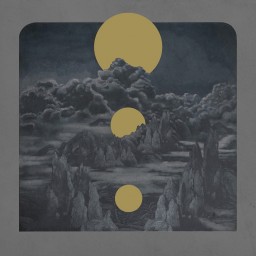
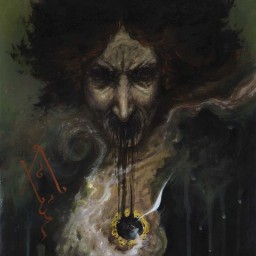 Vinny
Vinny
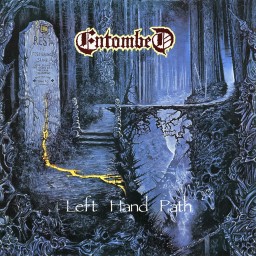
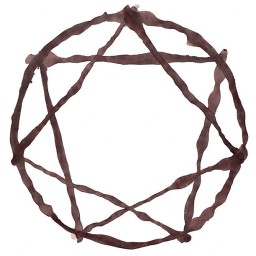 luajaz
luajaz
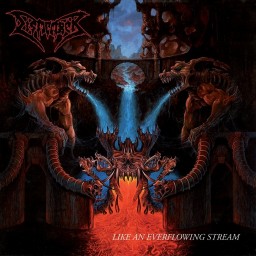
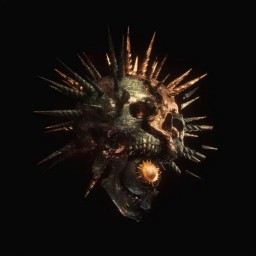
 Saxy S
Saxy S
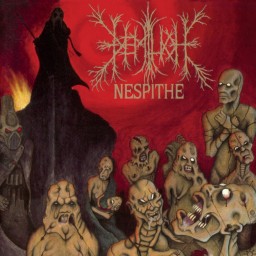
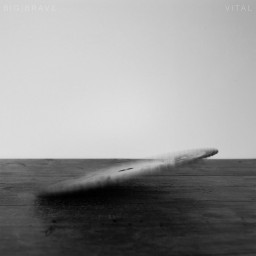
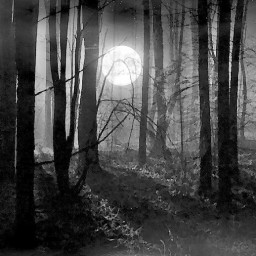 Sonny
Sonny
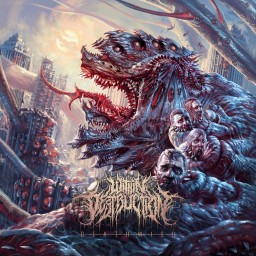
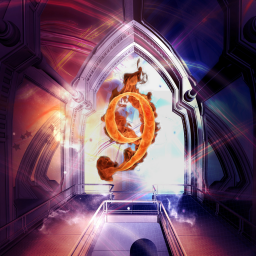 Shadowdoom9 (Andi)
Shadowdoom9 (Andi)
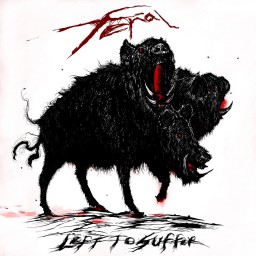
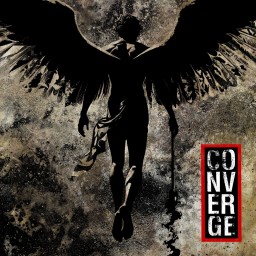
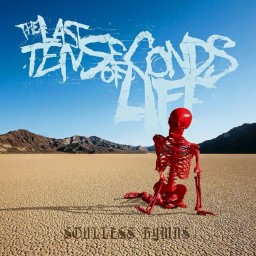
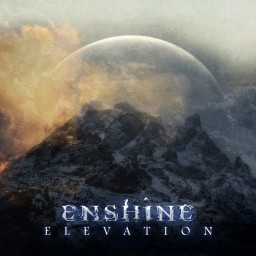
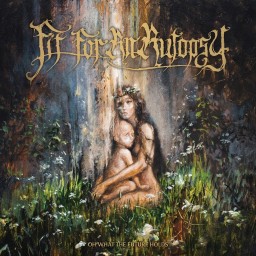
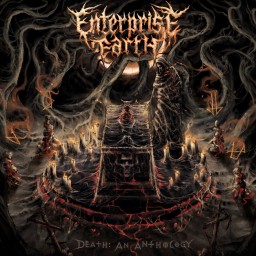
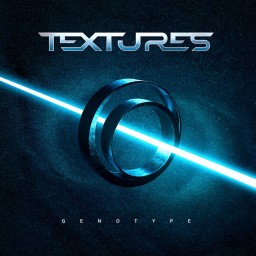
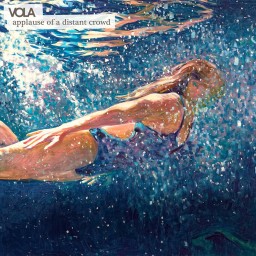
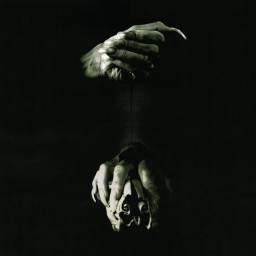
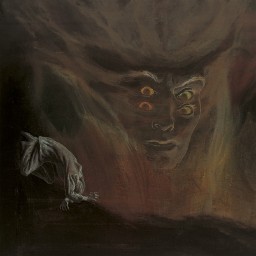
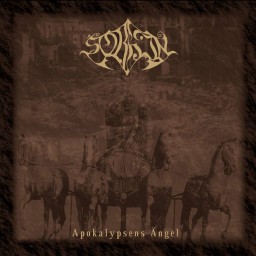
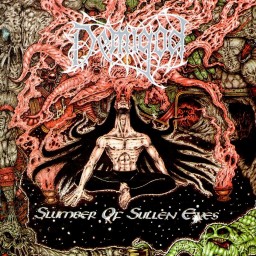
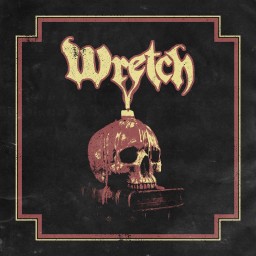
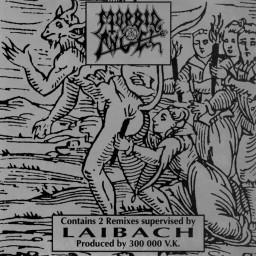
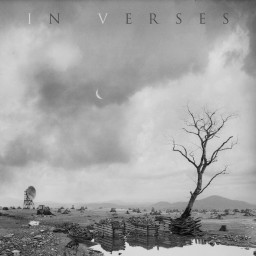
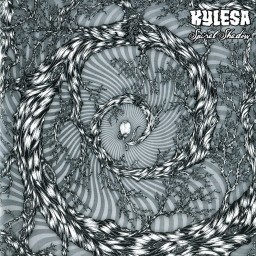
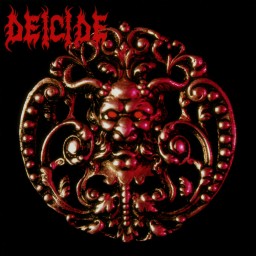
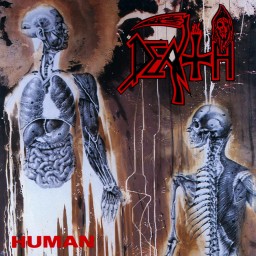
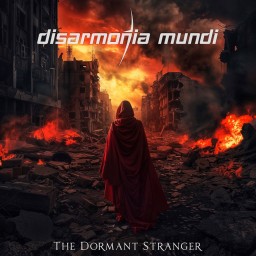
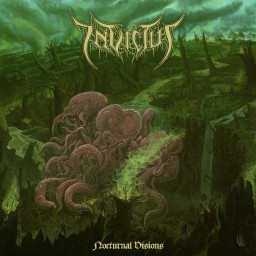
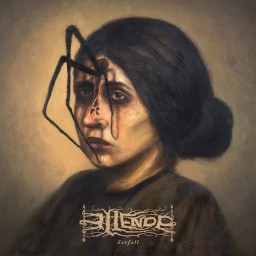
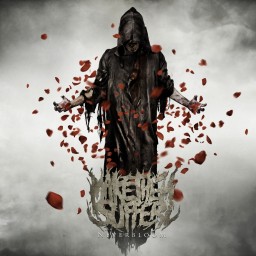
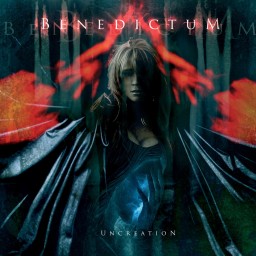
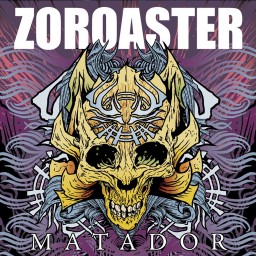
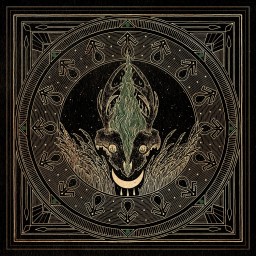
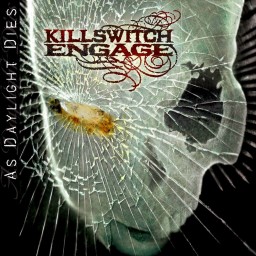
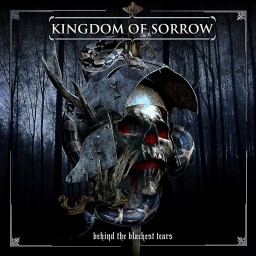
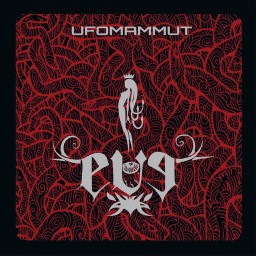
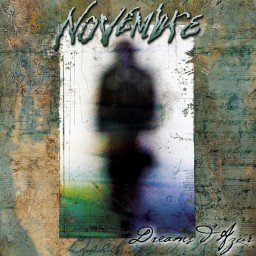
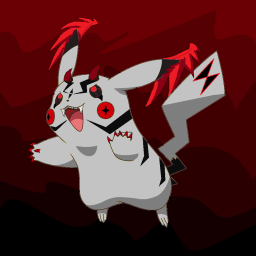 SilentScream213
SilentScream213
